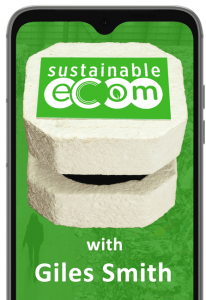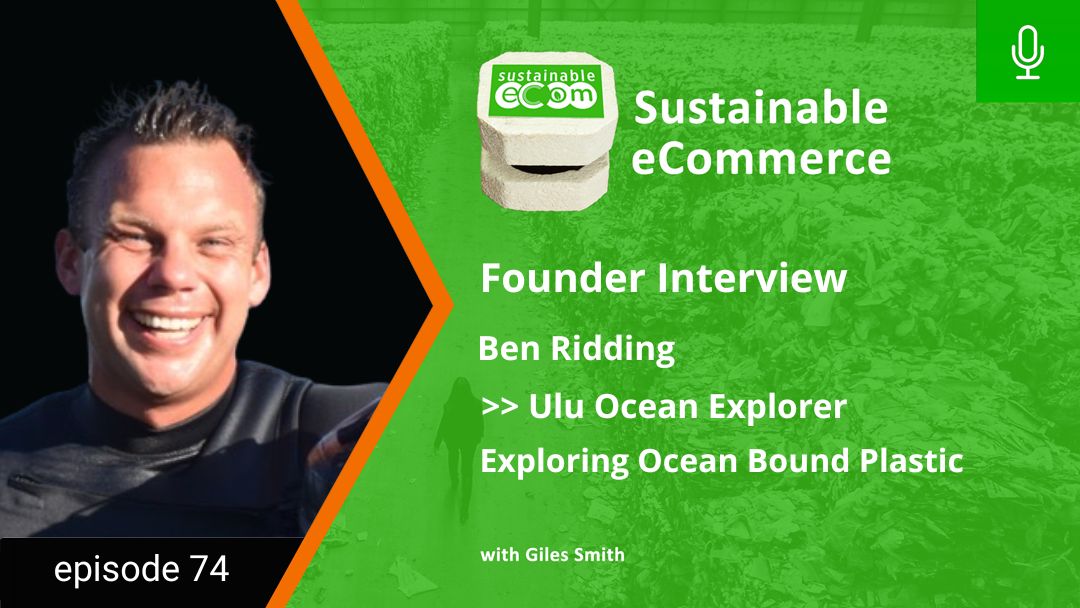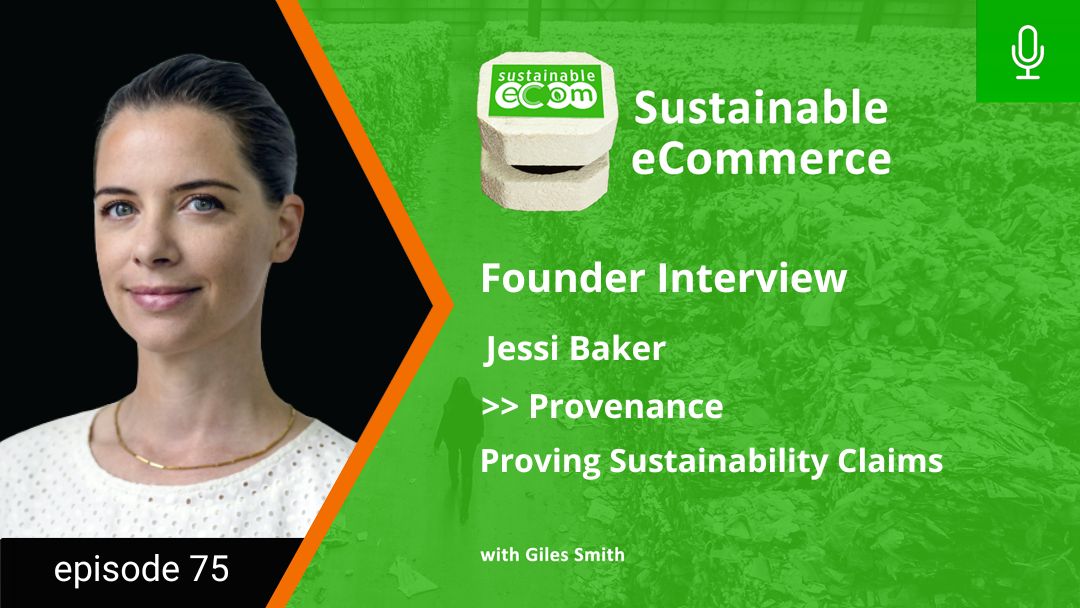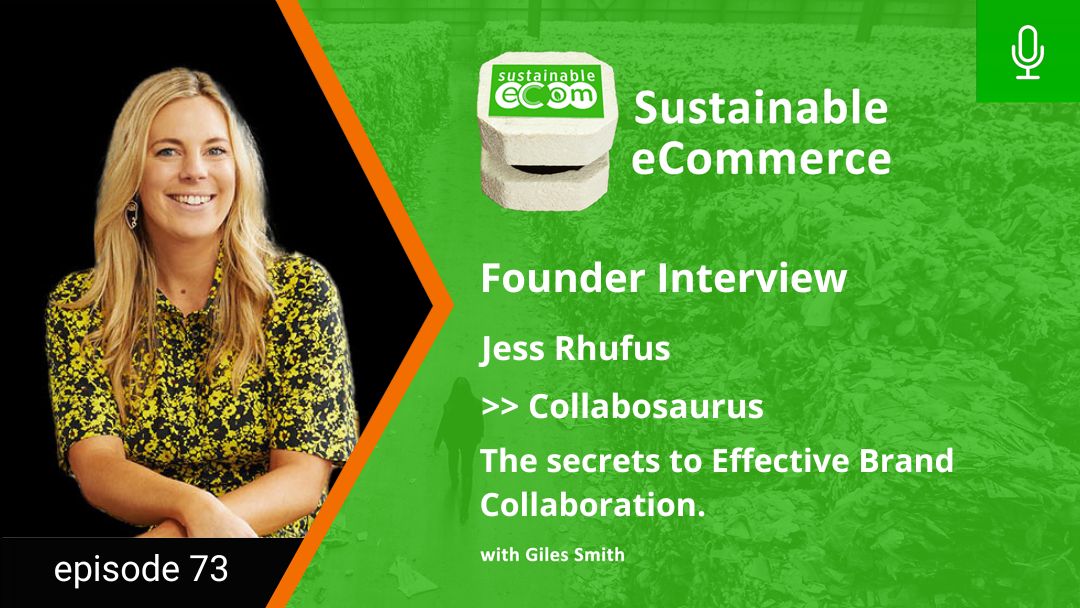Sustainable Ecommerce Episode 74
If you’ve been listening to the show for a while, you’ll likely have picked up that as a keen diver, the ocean plastics problem was one of my key motivators in setting up Sustainable Ecommerce.
So, there’s a special place in my heart for entrepreneurs working to solve that problem by using or averting ocean plastics.
When my friend Peter Donnelly from the Sustainability Champions podcast let me know about today’s guest, I knew immediately he was someone I wanted to chat to.
Ben Ridding is the founder of Cornish brand ULU Ocean Explorer. The brand helps people connect with and explore the ocean with their range of dry bags, but it’s their journey to using ocean-bound plastic to make their products that really piqued my interest. As we dive into the conversation, it becomes clear just how powerful and congruent their brand story is, and as more and more brands talk about using recycled plastic, how important it is to weave in an authentic story of impact to really resonate with consumers.

Top Takeouts
- I really liked Ben’s pragmatism when it comes to talking about sustainability. Now, obviously I’m a great believer in weaving sustainability story into your marketing, but ultimately talk is cheap. It’s extremely difficult for consumers to know who to trust in regards sustainability messaging – as Ben said, claims of using recycled plastic are rife, but it’s rarely clear what proportion of recycled vs virgin resin is being used, or where it came from. As more and more brands either claim to or genuinely do use recycled plastics, your recycled plastic product becomes less and less of a stand out. While we’re explicitly talking about plastic in this episode, the same is true for any sustainable material. Brands that continue to stand out and get the Lion’s share of growth are going to be the ones that deliver demonstrable impact too.
- But impact for impact’s sake isn’t enough. It has to be congruent. Ben’s story of using ocean bound plastic to make products for ocean explorers creates a beautifully aligned story for the customer. It’s simple to understand, important to the ocean loving customer, and keeps the issue of ocean plastics top of mind with every use of the product, creating micro-moments for activation and change.
- Lastly, if you’ve been holding off manufacturing in China because you’re worried about the quality of supply chain transparency and genuine use of materials, I totally hear you. But it was great to hear from Ben, even if it’s only self interest, more and more factories are investing in certification and recycled materials development to satisfy the growing demand from their brand partners. If that makes it more accessible for brands to source sustainable alternatives, and more economical for consumers to choose better products, that can only be a good thing for the health of our planet.











